Four things worth doing in challenging times
Philosophical writer Dougald Hine offers a list of deeper actions we can take
Hi there!
Welcome to Gen Dread, a newsletter about how the climate crisis is making us feel, why that’s happening, and what we can do about it. Subscribe now to find community, comfort, and practical coping and acting strategies from experts all around the world.
“What should I do?”
In the face of an escalating climate crisis, many citizens of earth are grappling with the question of “what should I do?”...and many climate experts are grappling with how to answer them. But you’re not going to find “change your bank to one that’s not invested in fossil fuels!” and “install a heat pump!” on here today (although those are wonderful and important actions to take if you can). These are not singular actions to check off a to-do list; they are instead four mindsets to step into and explore that will better equip you to confront our future.
Dougald Hine is a British philosopher, writer, activist, and speaker. He’s the co-founder of a unique storytelling project called Dark Mountain, which aims to steer people away from the same old narratives that stop us from truly confronting the social and planetary unraveling we’re living with. And he’s just published a book called At Work in the Ruins: Finding Our Place in the Time of Science, Climate Change, Pandemics & All the Other Emergencies.
Dougald thinks very deeply and courageously about the climate crisis and our response to it, urging us to ensure that that response is not coming from the same extractive, corporate, technocratic thinking that created the crisis in the first place. During our recent conversation, Dougald shared four actions to take that “are worth doing in a time of endings”. And here they are:
1. Salvaging the good things that we have a chance of taking with us from the world as we have known it.
“There are achievements of modernity, there are achievements of our industrial societies, which yes, have also been founded on colonialism and ended up causing this climate crisis. But there are achievements we would not gladly lose,” Dougald says. “And there's work we can do to try and salvage and bring with us some of those achievements.”
2. Then, there’s the work of mourning.
“This means the good things that we are going to lose as we head further through what's coming,” Dougald says. “In any time of grief, part of the work of mourning involves telling stories of what we've lost. And those stories can come with us. And so some of the stories of the achievements that we may well lose from the best sides of the era of modernity might turn out to be seeds out of which things grow in worlds that you and I can't imagine yet.”
3. The third kind of task is one of discernment.
“It means looking for what was never as good as we told each other it was about the ways we've been living around here lately. If the IPCC were to turn around tomorrow and go, ‘guys, it's terribly embarrassing! Turns out we did our sums wrong! You can release as much CO2 as you want, and it's not going to throw the climate out of whack!’ Well, we know that's not going to happen, but if they were going to do that, there would still be a whole swathe of things about the ways that we've been living in the societies that you and I were born into that are actually deeply anti-human, that are deeply damaged and damaging, and that are playing out in loneliness amongst old people, mental health problems amongst young people, addiction of all kinds, including addiction to these technologies that we're sucked into for so many hours of our days.
There are lots of things that are the product of ways of doing things that we've told ourselves were so good within modern societies, but that actually have had this kind of built-in counterproductivity. And so, in among all of the loss that lies around and ahead of us, one of the strange things that goes on as part of that is we're given the chance to leave behind some of those things that were never as good as we told each other they were.”
4. And the fourth task is looking for the dropped threads from earlier in the story.
“These are the ways of doing things that we've been told were old-fashioned, obsolete, inefficient – that actually turn out to be what makes all the difference as we're having to find ways of making life work together under difficult circumstances in the times ahead.”
You can delve deeper into Dougald’s work by subscribing to his Substack, or by checking out his new book, At Work in the Ruins: Finding Our Place in the Time of Science, Climate Change, Pandemics & All the Other Emergencies.
If you liked reading this, feel free to click the ❤️ button on this post so more people can discover it on Substack 🙏🏼
Making Waves
The world has successfully used treaties in the past to manage major global threats – from nuclear weapons to landmines to saving the ozone. Yet the Paris Agreement does not even mention the words coal, oil or gas. In recent years, despite their climate pledges and commitments, many countries approved new fossil fuel projects. In fact, fossil fuel companies plan to produce more than double the fossil fuels by 2030 than what is compatible with limiting warming to 1.5ºC.
This is why momentum is building behind the call for a the Fossil Fuel Non-Proliferation Treaty — a bold, new, global proposal with three clear pillars:
Non-Proliferation - preventing new coal, oil, or gas developments;
A Fair Phase Out - an equitable phase out of existing production and stockpiles; and
A Just Transition - so that no community, country or worker is left behind.
In recent months, the Fossil Fuel Treaty has been publicly called for by the nation-states of Vanuatu, Tuvalu, Tonga, Fiji, Antigua & Barbuda, Timor-Leste, as well as the World Health Organisation, the European Parliament, and the President of Timor-Leste. This significant diplomatic support comes after the endorsement by 101 Nobel Laureates, 650 Parliamentarians in 84 countries, over 3,000 scientists and academics, 90 major cities including Kolkata, Barcelona, Lima, Sydney and Hawai’i as well as more than 2,100 civil society organisations. Anyone can join this global campaign by endorsing the Fossil Fuel Treaty proposal today here and urging your own government to phase out fossil fuels and support this urgent initiative. Britt is an ambassador for the treaty, and you can support it too.
Emotions wheels have been visual tools used by psychologists for decades to help people better understand and interpret their own feelings. This Climate Emotions Wheel and Activity Sheet is an effort led by Anya Kamenetz and is based on the research of Panu Pihkala at the University of Helsinki and particularly his 2022 paper Toward A Taxonomy of Climate Emotions, which Gen Dread wrote about previously here. It is designed for all ages and to help you identify your own climate emotions and work with them.
As always, you can share your thoughts and reach the Gen Dread community by commenting on this article or replying to this email. You can also follow along on Twitter and Instagram.
‘Till next time!






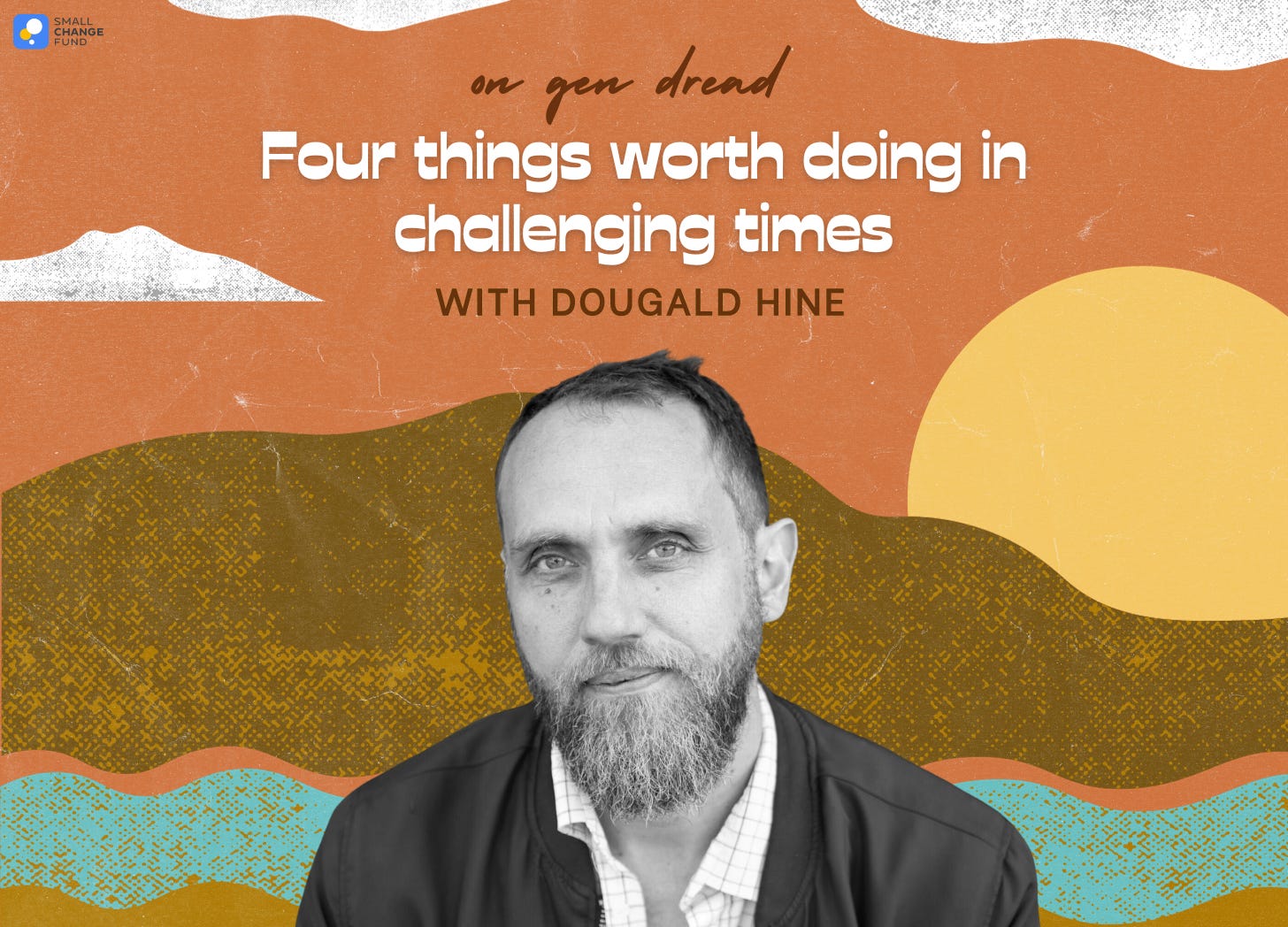
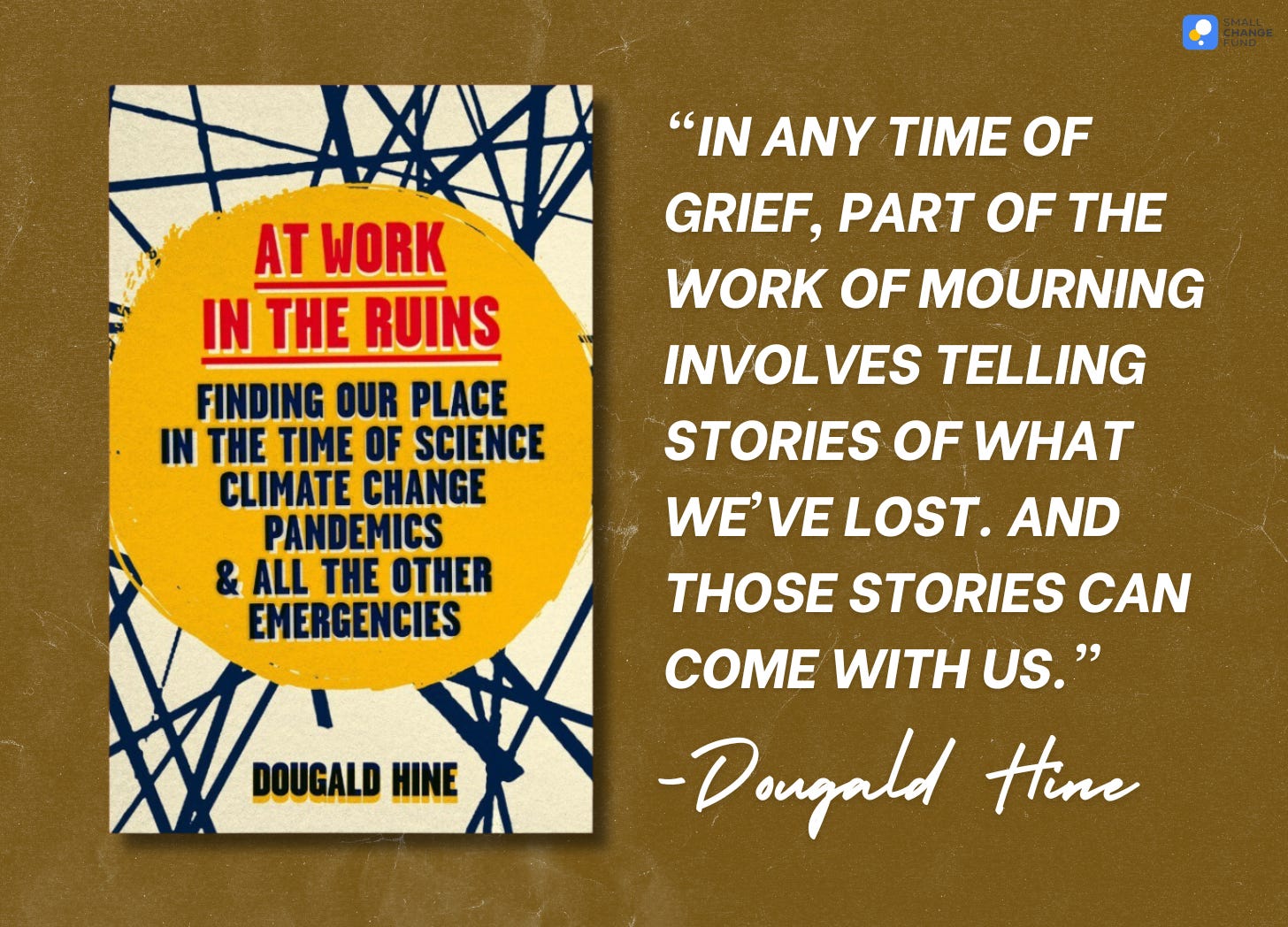
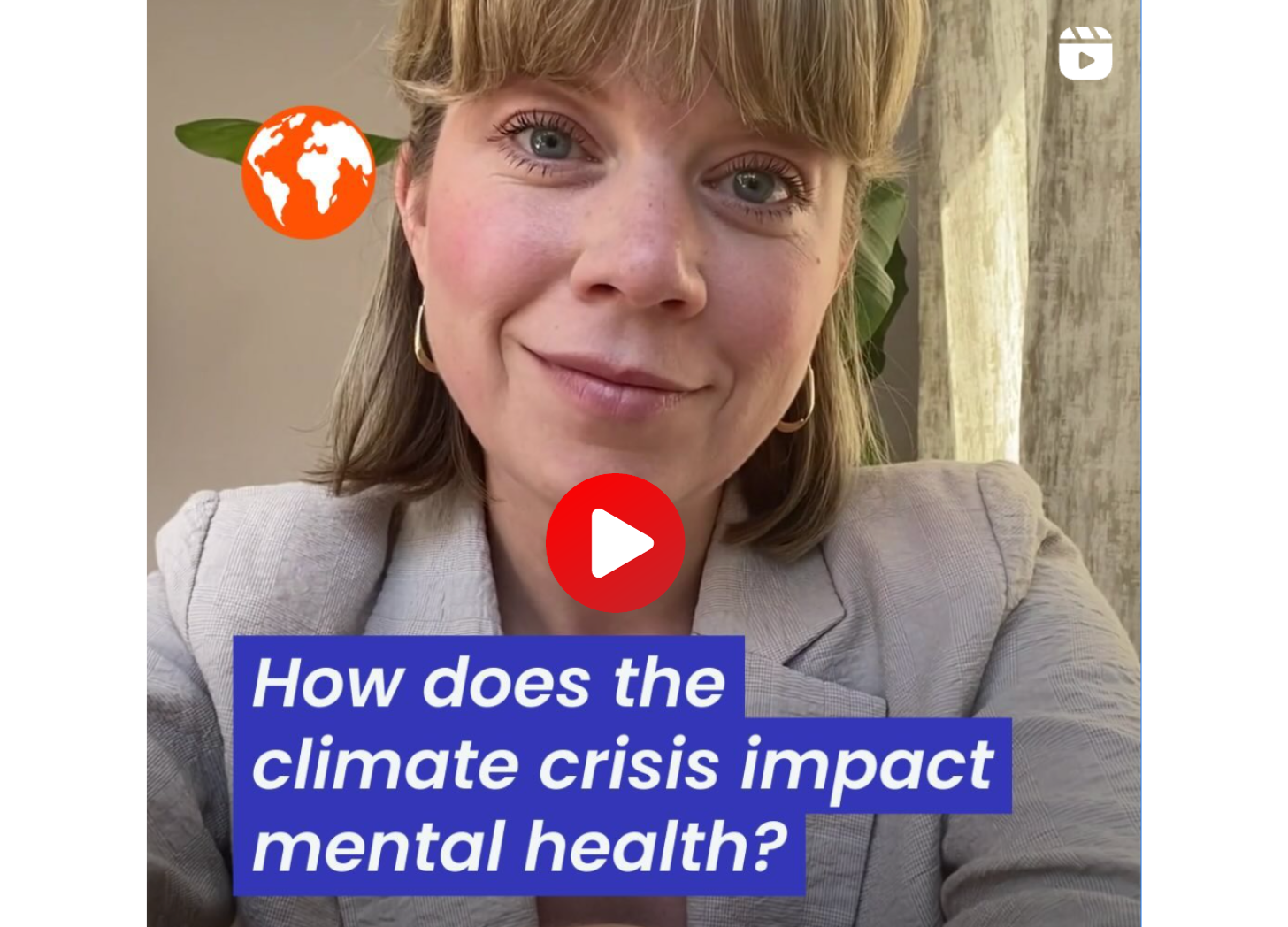
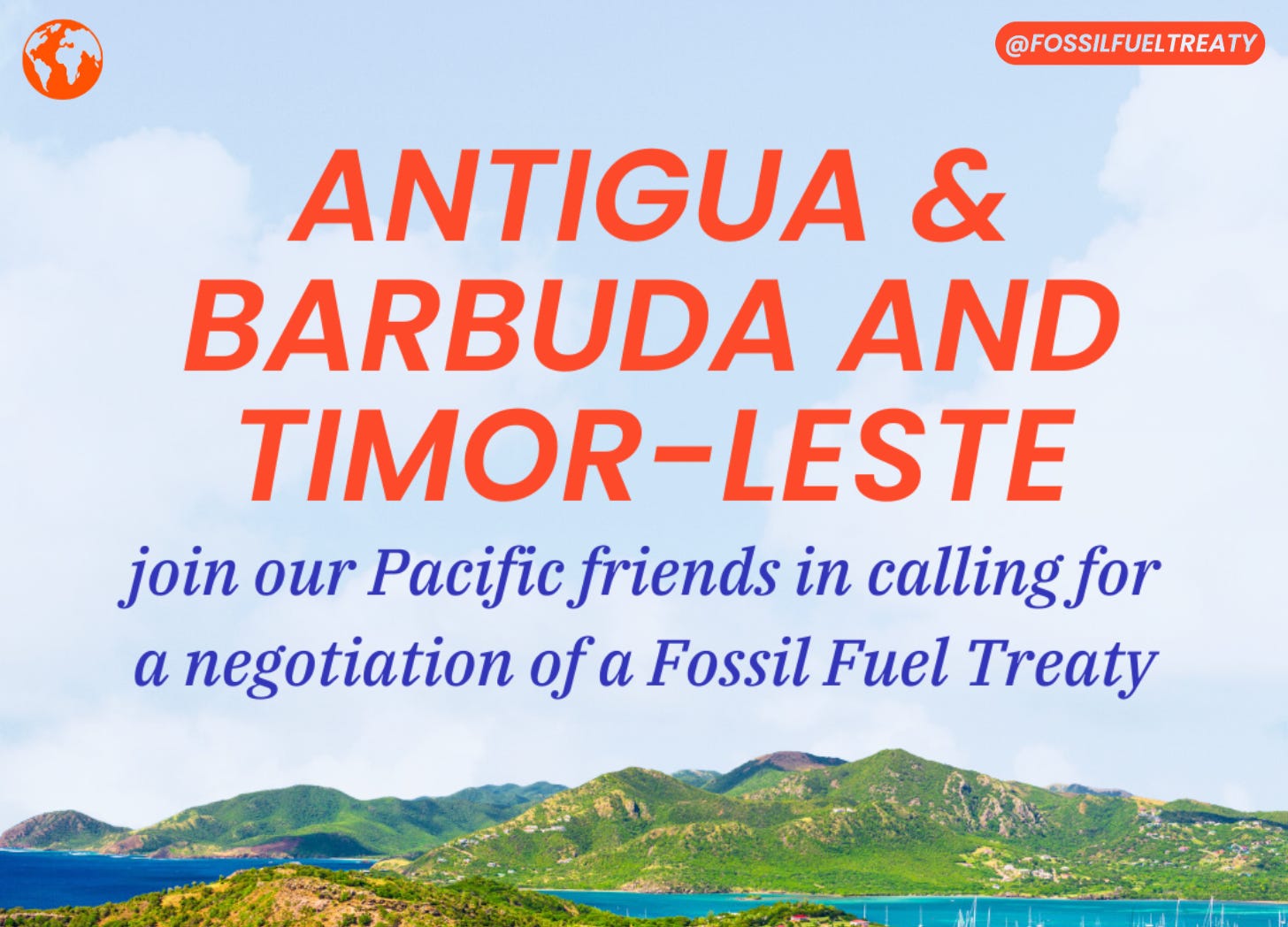
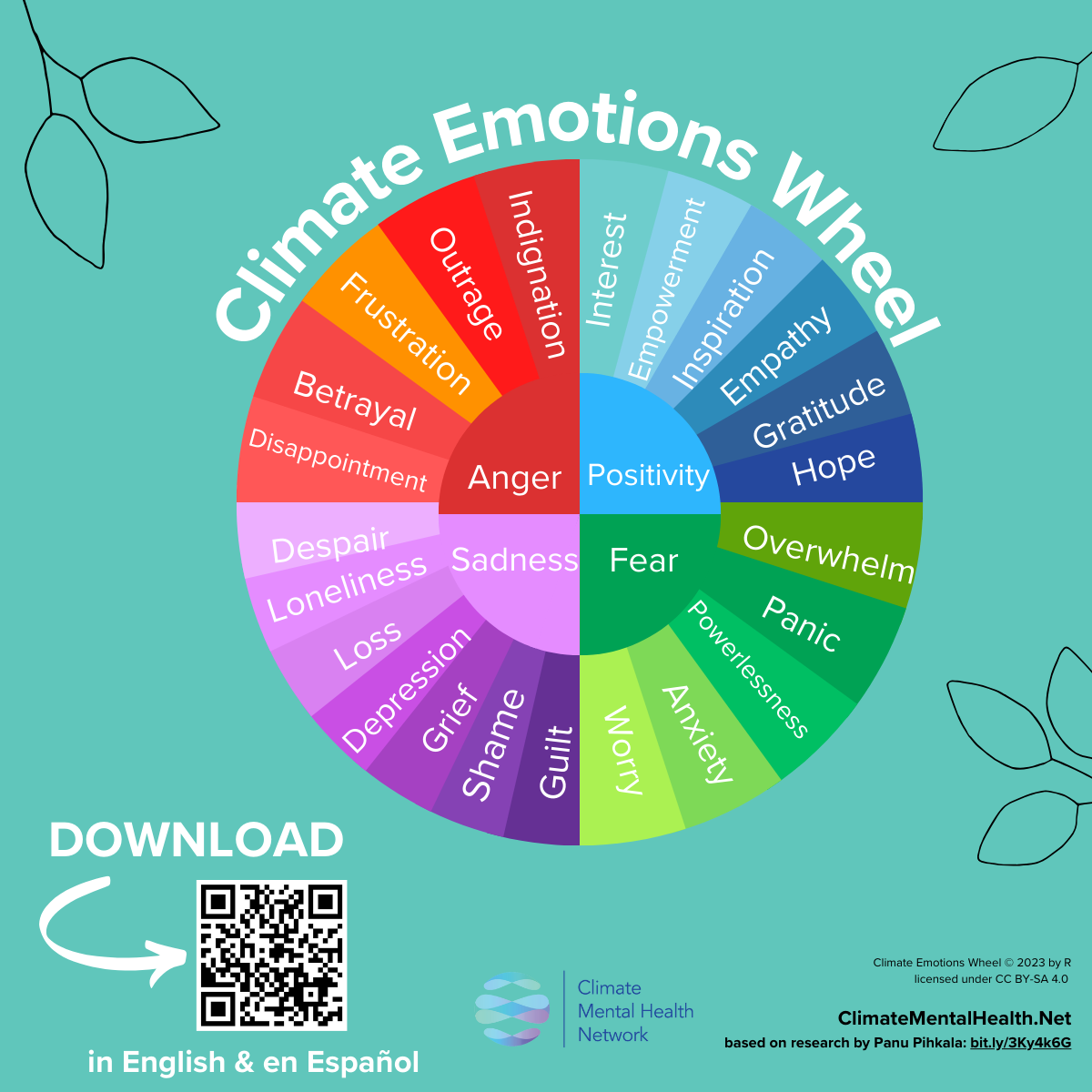

At Work In The Ruins is one of my favourite books, I recommend it to EVERYONE I meet.
Thank you for introducing Dougald Hine! We need to see the bigger picture of the climate crisis and all the intricacies of connection with attitudes, social actions, and emotions.